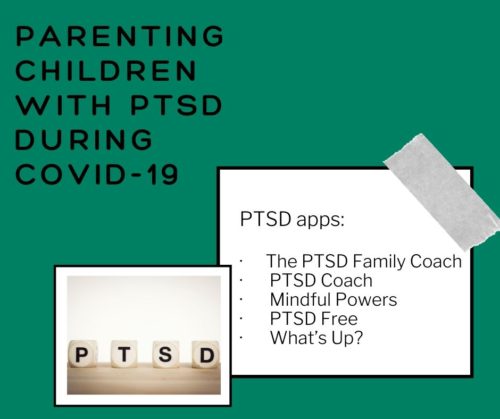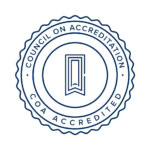Parenting Children With PTSD During COVID-19

By Dr. Lauren Barry, Director of Clinical Initiatives and Data Analytics
When most people think of Post-Traumatic Stress Disorder (PTSD) they likely picture an adult who has been in combat, a serious accident or experienced violence. Children can also have PTSD either from experiencing trauma directly or witnessing it. Childhood trauma can be from a specific event like a car accident or dog bite, but it can also include witnessing domestic violence or enduring neglect or abuse.
Children diagnosed with PTSD are more likely to react strongly to change in their life, to have more trouble managing their emotions and to have less ability to tolerate the disruption and unpredictability. On top of that, these children are significantly affected by the loss of their routine and social connections.
As you might imagine, COVID-19 is not helping.
Research has shown that traumatic experiences impact the developing brain. New fears can develop and old triggers for children can reappear or be exacerbated by the current pandemic.
Children who have been diagnosed with PTSD typically exhibit symptoms that fall into four main categories:
- Body – headaches, stomach aches, sleep problems
- Brain – thinking, concentrating, memory problems
- Emotions – feeling unsafe, having trust and attachment issues, always on edge, having trouble expressing feelings, low self esteem
- Behavior – overly reactive, irritable, aggression, difficulty with impulse control
What can you do as a parent to lessen trauma when it feels as though it’s all around us?
Five Things You Can Do:
- Respond calmly. Parents who are calm reduce the tendency for children with PTSD to overreact with emotions or behavior. It is important to remember that your child is not a “bad kid,” but that bad things happened to them.
- Help your child stay in the present which will make it easier for them to concentrate and manage their everyday life. There’s a popular and effective method we use at Wayside, where PTSD is the third most common reason families seek mental health treatment for their children, called the 5, 4, 3, 2, 1 Five Senses Grounding Technique. The technique is designed to help children calm themselves when their fears start to take over. It begins by your child taking a deep breath and looking for five things around them (saying them out loud), four things they can touch or feel, three things they can hear, two things they can smell and one thing they can taste. They then take another deep breath to finish the exercise. This can calm their body’s physiological fear responses as well as distract them from their anxious thoughts.
- Talk to your child about what triggers their PTSD and plan ways they can calm themselves when they become anxious. Children with PTSD react with a “fight or flight” response, even when that is no longer helpful or necessary. Being aware of the specific triggers – sounds, smells and emotions can help minimize PTSD symptoms. Write down your child’s triggers on one side of a paper and specific solutions or distractions on the other side. For a child who was bitten by a dog for example, the trigger might be the sound of a dog barking or seeing a dog outside. They might need to know that you are close by, need to see the size of the dog or to be distracted by music or a movie. Reading stories about dogs or looking at puppy videos might help them feel less fearful of dogs.
- Keep your child occupied with hobbies or things that will keep their mind busy. Try having them write in a journal or use breathing techniques until the feelings of panic pass. Some children want to talk things through, while others just need a quiet place to read a book or watch a movie. When they find a coping strategy that works for them, encourage them to use it again. If it didn’t work, come up with a different strategy so they feel more in control over their fears.
- Try using mobile apps. There are family-friendly apps designed specifically for managing symptoms of PTSD including:
If your child is not currently in treatment but is exhibiting symptoms of PTSD and needs professional help, you can contact the Behavioral Health Partners of MetroWest at (844) 528-6800.
Lauren Barry, Ph.D. is a Counseling Psychologist who has provided treatment to children and adolescents at Wayside for over 20 years.

